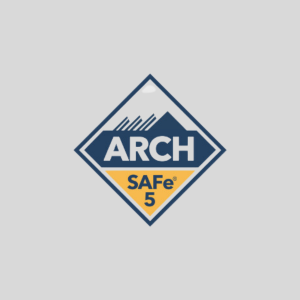Description
Who should attend
This Scrum Master (CSM) certification program was developed for any professional who is currently involved in or will become involved in the running of Scrum projects.
Current Scrum Team Members not certified, including:
- Business customer, user or partner
- Product Owners
- Team Members
- Acting ScrumMasters who currently are not scrum certified
Positions within organizations that are interested in moving to Scrum, including:
- Project Manager Project lead
- Project sponsors
- IT Manager/Directors
- Business Analyst
- Developers/Programmers
Prerequisites
Although it is not mandatory, students who have completed the self-paced Foundations of Agile eLearning course have found it very helpful when completing this course.
Course Objectives
In this Certified ScrumMaster (CSM) Course, you will:
- Explain and facilitate the Scrum roles: team member, Product Owner, ScrumMaster
- Use the foundational, critical concepts of Scrum
- Apply empirical thinking to your project work
- Understand your team’s productivity and lead them to improve it
- Communicate the importance of organizational agreement on software readiness
- Appreciate that the ScrumMaster role can be the most satisfying as well as the most difficult job on a project
- Embrace the role of conflict resolution in Scrum
- Work on real-world Scrum projects
- Utilize the Scrum framework
- Know when software is “done” under Scrum
Outline: Certified ScrumMaster Workshop (CSM) (SCRUM)
Part 1: Scrum Theory
- Empiricism and the three empirical pillars
- Benefits of an Iterative and Incremental approach
- The Scrum Framework
- Scrum Values
- Scrum alignment to the Agile Manifesto
Part 2: The Scrum Team
- The responsibilities of the Scrum Team
- The responsibilities of the Product Owner, Developers, and Scrum Master
- Single Product Owners
- Product Owners own the Product Backlog
- Delivering an Increment
- Benefits of a cross-functional and self-managing Scrum Team
Part 3: Scrum Events and Activities
- Benefits of Timeboxing
- Purpose of a Sprint
- Define and perform Sprint Planning, Daily Scrum, Sprint Review, Sprint Retrospective
- Product Backlog Refinement
- Inspecting and Adapting events
- When to cancel a sprint
- Daily Scrum is not a status meeting
Part 4: Scrum Artifacts and Commitments
- Purpose of the Product Backlog, Sprint Backlog, Increment
- The commitments of Product Goals,Sprint Goals, Definition of Done
- Product Backlog emergence
- Attributes of a Product Backlog
- Sprint and Increment relationship
- Evolution of a Definition of Done
- Multiple Teams working on one Product Backlog
Part 5: Scrum Master Core Competencies
- Facilitation
- Facilitating decision making
- Teaching
- Coaching
- Mentoring
Part 6: Service to Scrum Team, Product Owner and Organization
- How does a Scrum Master serve the Scrum Team
- Explaining Technical Debt
- Understanding development practices to improve quality and reduce technical debt
- Supporting the Product Owner
- Organizational impediments that afect Scrum Teams
- Techniques for resolving impediments
- Why are there no Project managers in Scrum?




